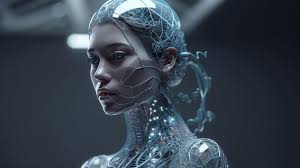Defining Human Rights in the Age of AI and Animal Advocacy
Human rights are fundamentally designed to protect humans. These rights are enshrined in various international documents like the Universal Declaration of Human Rights (1948), which outlines rights such as liberty, equality, and dignity. However, as our understanding of other beings—both biological and artificial—evolves, the question arises: should these entities also enjoy similar protections?
The Case for Animal Rights
The push for granting certain rights to animals has gained momentum over recent years. Ethical arguments for animal rights often focus on the capacity to suffer and feel pain. For example, the Great Ape Project, founded in 1993, argues for extending moral and legal protections to non-human great apes. This initiative is based on their complex emotional and social lives that mirror human behavior in significant ways. In some countries, such as New Zealand and Spain, legal frameworks now recognize animals as sentient beings, granting them rights previously reserved for humans.
AI and Rights: A Developing Debate
The debate around AI and rights centers on whether highly advanced AI systems—such as those capable of experiencing emotions or possessing self-awareness—should also have rights. As of now, no AI system has been granted legal personhood, but the discussion is alive in academic and tech circles. In 2017, the European Parliament proposed the concept of "electronic persons," suggesting that sophisticated autonomous robots could have specific rights and obligations. The proposal highlighted the need for responsible AI development and accountability.

Practical Implications of Extending Rights
Extending human-like rights to non-humans carries significant legal and ethical implications. For animals, it could mean enhanced protection against cruelty and better living conditions. For AI, it might involve creating frameworks to ensure responsible usage and prevent exploitation of advanced AI systems. However, these changes require a reevaluation of existing legal definitions and the establishment of new regulatory bodies.
Human or Not
For a deeper discussion on the evolving definition of rights in relation to AI and animals, visit human or not.
The Role of Society in Shaping Rights for Non-Humans
Public opinion and societal values play crucial roles in shaping the discourse around non-human rights. As society evolves, so too does its moral landscape, prompting reconsiderations of who or what deserves protection under the law. The ongoing debates and legislative changes reflect a broader societal shift towards more inclusive and compassionate frameworks.
Extending human rights to non-humans, whether animals or AI, is not merely a legal issue but a profound ethical challenge. It requires us to reconsider what it means to be worthy of rights in the first place. As technology and our understanding of the animal kingdom advance, the lines traditionally drawn around rights and who qualifies for them are increasingly called into question. This reevaluation signifies a significant shift in our moral and ethical understanding, one that will continue to evolve with further developments in science and technology.